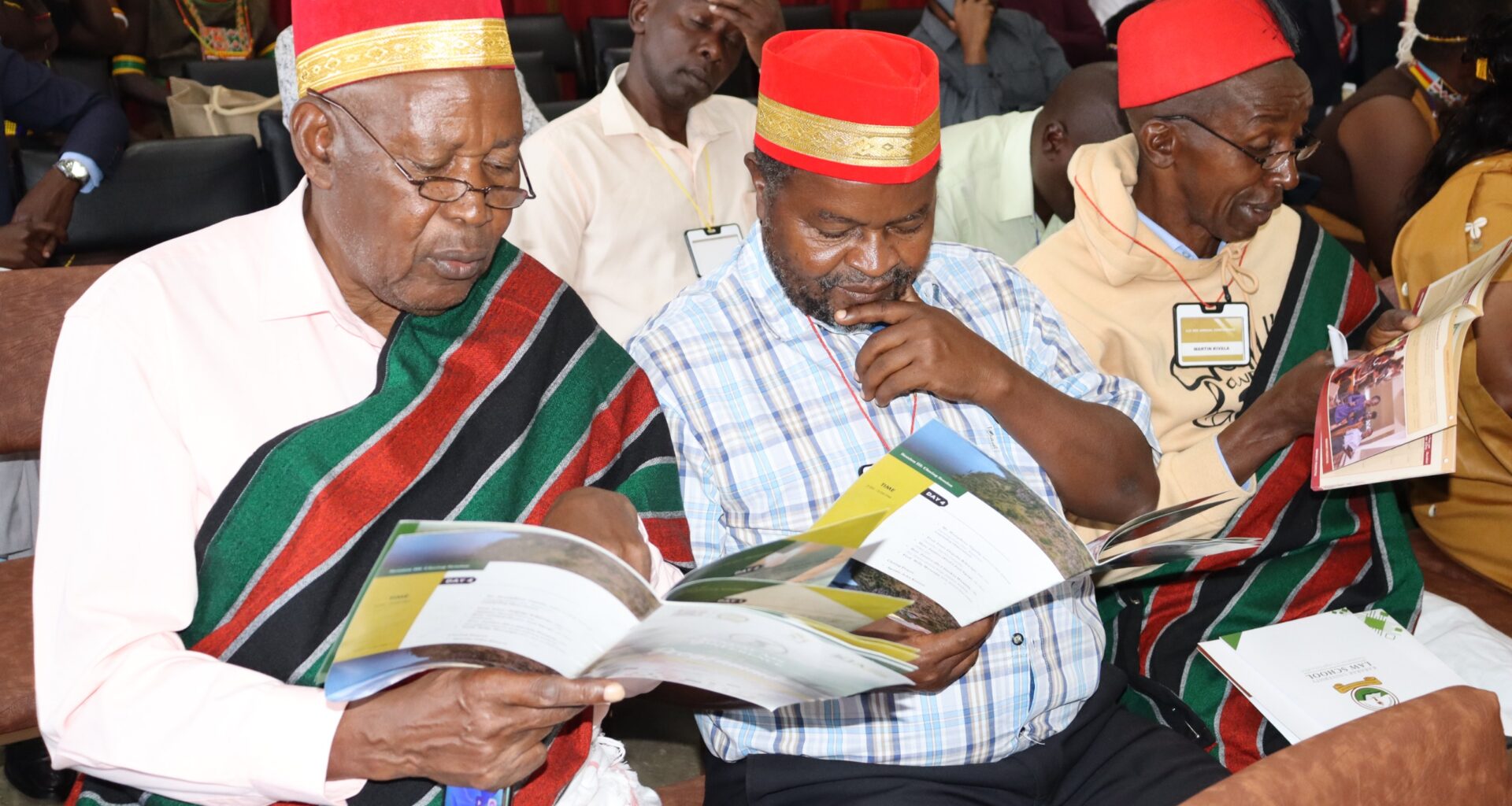NAKURU,Kenya – Since time immemorial,Kenya’s culturally rich communities proudly championed and practiced their own forms of justice that was tethered in basic mechanisms and principles of reconciliation and peaceful coexistence.
For decades, this inherent system; either customary or informal justice mechanisms was at the center of dispute resolutions as communities thrived and its constituents expressed satisfaction at how justice was dispensed.
At the onset of colonization in Kenya, most of these laws were considered retrogressive,archaic and outdated as the colonial master brought forth laws he considered supreme but in reality were favourable to white settlers and punitive to indigenous communities.
Pre-independence, vestiges of the colonial constitution formed part of independent Kenya’s laws which also did not formally recognize informal justice systems. With the promulgation of the constitution 2010 however, Kenya has strived to recognize the importance of some of these alternative justice systems in line with the constitutional directive in Article 159(2)(c) of the Constitution, thus the development of the alternative justice system (AJS) policy.
According to the steering committee on the implementation of AJS,, 64 per cent of Kenyans seeks justice through AJS, 17 per cent through the court system and or tribunals, while 19 per cent of Kenyans said that they do not seek any legal action in the event of an injustice committed against them.
Justice seekers in Kenya use mechanisms for justice that are outside the judiciary, proving that these mechanism are no longer regarded as ‘others’ or subordinate alternatives. The success of AJS has been pegged down to its people centered approach to justice, as well as its familiarity to addressing cultural issues in a way that is familiar to communities while providing lasting solutions.
The fact that AJS is also considered to be a faster route to justice, while also providing durable resolutions to disputes, has been credited as some of the reasons it continues to thrive in the country.
The AJS policy however strives to ensure that in order to properly recognize, regulate and enhance its use, it must align its operation with principles and values of the constitution and international human rights standards. All this, while underscoring the need for a pluralistic approach to justice that is sensitive to cultural, socio-economic and geographical diversity of the population.
Take for instance the Borana community in Kenya that is also spread in parts of Southern Ethiopia. For centuries, the community has relied on the ‘Gada’ system to resolve major social, political and economic conflicts. The ‘Adulaa council’ has been entrusted to uphold peace and harmony within the community.
Notably among the Somali community, the maslaha system has been used to resolve various conflicts in turn greatly assisting in enhancing reconciliation and cohesion within the community. In recent years however, the system has been abused by some in cases involving criminal matters such as murder and even cases of rape or defilement.
On this, there is need to ensure that alternative dispute resolution (ADR) mechanisms do not contravene available legal instruments that prescribe penalties for such offences. Also, it is important that victims of these crimes are not denied the justice they deserve and entitled to.
Elders, who are the ultimate custodians of law within their communities must be properly sensitized on the principles and values of the constitution and international human rights standards in order to fairly dispense justice when hearing and resolving cases.Equally, it is imperative that members of the community are also sensitized on AJS as we strive on improving access to justice for all.
There is no doubt that AJS has facilitated the resolution of disputes that would have otherwise burdened the formal courts in turn reducing the backlog of cases. Concerted efforts should however also be put in sufficiently documenting the impact of AJS on justice outcomes and the administration of justice as the judiciary continues to set up specialized centers across the various counties.
For AJS to be fully realized, it must embrace the people-centered justice approach.
The writer Shukri Wachu is a journalist and Communications Officer ICJ Kenya.







